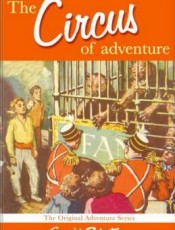dear sugitani akihito sensei,
it has been nearly a month since we said goodbye, but i can relive virtually every moment of our timetogether in my hometown as if it were yesterday. with no concern for age or physical frailties, youcrossed land and sea to come to this out-of-the-way spot and engage in literary conversations withme and with local fans of literature; we were deeply moved. on the second morning of the year, youfavoured us with a presentation in the county guesthouse auditorium that you called ‘literature andlife’. with your permission, we would like to publish a transcription of the taped lecture in the localpublication frog calls, so as to make available to those who were unable to attend in person achance to appreciate and learn from your use of language.
on the morning of the first day of the year i accompanied you on a visit to my aunt, an obstetricianfor more than fifty years, and though she spoke too quickly in her accented chinese for you to graspeverything she said, i am sure she left a deep impression on you. in your talk the next morning youcited her often in support of your views of literature. you said you came away with an image of adoctor racing across a frozen river on a bicycle; another of her with a medical kit slung over herback and an open umbrella in one hand, trouser cuffs rolled up, as she forces her way through amass of croaking frogs; yet another of a doctor laughing joyfully as she holds a newborn infant in herhands, her sleeves spattered with blood; and finally one of a doctor with a care-laden face, acigarette dangling from her lips, clothing rumpled . . . you said that all these mental picturessometimes come together into a single image and at other times split into discrete fragments, like aseries of carvings. you urged local literature fans to create poignant works of art out of my aunt’slife, either in fiction, in verse, or in drama. sensei, your encouragement has produced a creativepassion in many of us. an associate at the county cultural centre has already begun a novel about avillage obstetrician, and though my understanding of what my aunt accomplished is much greaterthan his, i do not want to enter into a competition and will leave the writing of a novel to him. what iwant to do, sensei, is write a play about my aunt’s life. on the night of the second, when we weretalking as we sat on the kang at my house, i experienced an epiphany thanks to your high praise anddetailed analyses, as well as your unique insights into the plays of the frenchman, sartre. i want towrite, i feel i must write librettos as fine as the flies and dirty hands, with the audacious goal ofbecoming a great playwright. with your instruction as a guide, i will proceed slowly, without forcingthe issue, as patient as a frog on a lily pad waiting for insects to come its way. but when i put pen topaper, it will be with the speed of a frog jumping up to snatch an insect out of the air.
when i was seeing you off at the qingdao airport, you asked me to send you in letters the story ofmy aunt’s life. although she is still alive and well, i could describe her life using such potentmetaphors as ‘surging forth magnificently’ and ‘rife with twists and turns’. there are so manystories, and i don’t know how long this letter ought to be, so with your indulgence, i will put mymeagre talents to use by simply writing until the time has come to stop. in this age of computers,writing a letter with pen and paper has become a luxury, but a pleasurable one, and i hope that asyou read this, you enjoy a taste of olden times.
while i’m at it, i want to tell you that my father phoned to say that on the lunar twenty-fifth, redblossoms burst onto the tree in our yard, the one whose unique shape prompted you to call it a‘talented’ old plum. many people came to witness our blooming plum, including my aunt. my fathersaid that a feathery snow fell that day, saturated with a redolence of plum blossoms that cleared thehead of anyone who smelled it.
your student, tadpole
21 march 2002, in beijing
